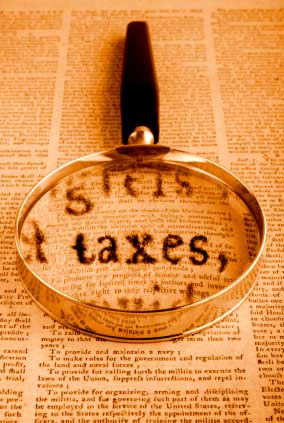A wealth of affluent UK citizens who live abroad and believe themselves to be free from the claws of the UK taxman may be in line for a pricy shock.

A recent court ruling found that Robert Gaines-Cooper, a Seychelles based businessman, was indeed liable to pay UK tax, something he had not been doing. Despite leaving the UK in 1976 the Court of Appeal decreed that Mr Gaines-Cooper was not actually a non-resident, and that HMRC were right to claim the taxes.
Even though Mr Gaines-Cooper spent less than 91 days in the UK per year the court decided that he still had prominent ties to the UK, enough for him to still be classed as an official resident. This means that he will now be hit with a hefty, back-dated, tax bill for 1993-2004, up to a whopping £30m. The guidelines have always stated that spending 91 days or less in the UK per calendar year is an important factor in determining your status, but not the be-all and end-all of the matter. A spokesman from the law firm Withers offered this insight: “one of the great myths of tax planning is that spending less than 91 days or nights in the UK is sufficient for an individual not to be treated as resident here. This is not and never has been the case and the test of whether or not an individual should cease to be treated as UK resident is much more complicated and uncertain, as Mr Gaines-Cooper has found to his cost.”
The spokesman added: “To cease to be treated as UK resident, a taxpayer has to make a distinct break of ties with the UK and to properly establish himself in another jurisdiction. As such, it is a question of fact in each case, and a question of all the facts of an individual's lifestyle, not simply the number of days spent in the UK.”
The judges at the Appeal Court decided that despite living in the Seychelles, England was still a huge part of his life, the “centre of gravity of his life and interests" and that he had not made a “distinct break” from the UK. Mr Gaines-Cooper made a vast fortune via international business, he grew up in Berkshire and owns a mansion in Oxfordshire, a key point for the judges who claimed that the 27-acre estate was still his primary place of residence, leading to them stating that Mr Gaines-Cooper was indeed “resident and ordinarily resident in the UK”.
The ruling was met with dismay from Camp Gaines-Cooper, his barrister saying that the decision “involves a wholly wrong reading of the policy and turns it from a sensible, practical, guide into something meaningless and, which is worse, a devious trap”.
The implications of this case could have big ramifications for the estimated six million British expatriates who currently live overseas. Many of these people, more so the super-rich like Gaines-Cooper, could now be subject to investigation and ultimately have to pay large back-dated tax bills. Tax adviser at accountancy firm Saffery Champness, Ronnie Ludwig, told BBC News: “A lot of people think they are out of the UK tax system - they may now be caught” he added that HMRC will now have precedent to go after expats “They will look at the time spent here, the regularity of your visits, if the UK is the main centre of your economic activity and business ties, if you have family connections such as children going to boarding school, if you are a member of a sporting club, and if you use UK credit cards, banks and even mobile phones”.
The case and its implications are a strong indication of HMRC’s growing aggression with regards to supposed non-residents. Expats must now be very careful with regards to having children left in the country, property or other assets. If found to still be resident, unknowing expats could be taxed on all their worldwide assets.
An HMRC spokesman said: “It is useful that the Court of Appeal has acknowledged that HMRC can increase compliance activity in an area so that it can ensure it catches those who may have previously not paid tax that is due”.
Whilst this is a new development, the onus is on HMRC to prove residency and should affect few expats. The law is clear, non-residents are not liable to income, capital gains or savings tax by HMRC. For further information, please see our Offshore Tax section.

